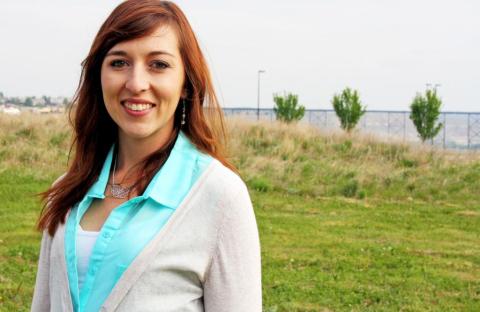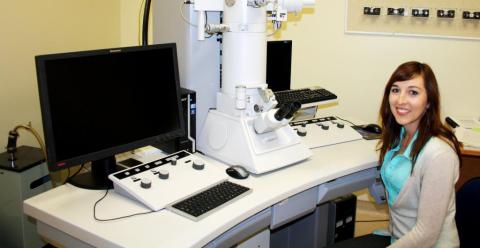Passion for neuroscience helps shape U of L experience

For Morgan Dumville, transferring from college to the University of Lethbridge has meant greater independence and the chance to discover the career of her dreams in neuroscience. Morgan explains, “The U of L is home to the Canadian Centre for Behavioural Neuroscience (CCBN), a world-renowned centre at the forefront of neuroscience research. The CCBN provides students with endless opportunities for interesting and innovative scientific exploration. Getting involved with research at the CCBN has allowed me to help shape the field of neuroscience which I feel will have a direct impact on people’s lives.”
Morgan has taken every opportunity to soak up experiential learning throughout her studies, not only at the CCBN but also by completing two Applied Studies work terms and two Co-op work terms. Both programs provide students with practical, hands-on learning related to their degree. Her work terms have taken her on a journey through non-profit, government and most recently to a privately run microbiology lab, but even through all these different experiences, her passion for neuroscience research has remained. Morgan has learned she loves being involved in research and clinical work and acknowledges her work terms, “have provided me with real world practice for the concepts I have learned in class. I have been given the opportunity to utilize the knowledge I have gained from my courses and feel confident that a career in neuroscience is for me.”

The move to Lethbridge for neuroscience was a big one, but she is sure glad she did it. Initially she was hesitant to make the move as the unknown seemed a little frightening to her, but once she did, she embraced it and took advantage of every moment that presented itself to her. As Morgan nears the end of her studies, she realizes her passion for neuroscience has helped shaped her unique U of L experience and each day she learns more about herself and what she would specifically like to accomplish in the field of neuroscience. The dedication and enthusiasm for neuroscience that her professors have shown, as well as the hands-on learning opportunities she has had, has inspired Morgan to pursue a career that will involve both research and clinical neuroscience.
Her message to students considering a big move is simple, “Be ok not ending up where you thought you would. You might not be doing what you thought, but you might end up doing something you love even more.”
